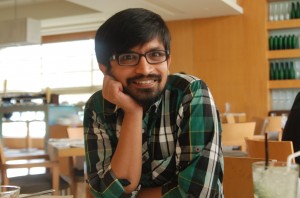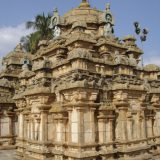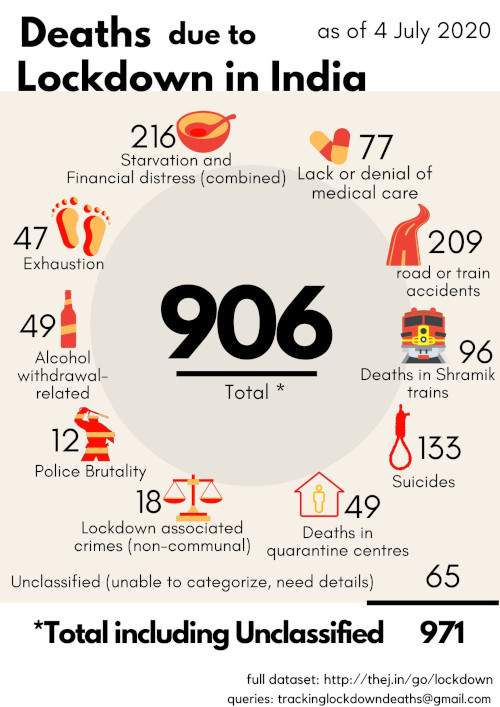Book: The Annihilation of Caste
"The Annihilation of Caste" was supposed to be delivered at a conference organized by a Hindu reformist group Jat-Pat Todak Mandal in Lahore, 1936. At last-minute the group took back the invitation saying speech was against Hinduism and its shastras. Ambedkar self published the speech as the book. At that point the content of the speech caused national debate and caused heartburn.
Even today the content is true, applicable, revolutionary and can cause "heartburning and irritation" to many Hindus. I didn't get to read this as part of my education (I wonder why?). Here I am at last. I am totally taken over by it. Every paragraph is crystal clear and very quotable. Here are my favorite ones.
B. R. Ambedkar
As a rule, I do not like to take any part in a movement which is carried on by the Caste Hindus. Their attitude towards social reform is so different from mine that I have found it difficult to pull on with them.
The last portion which deals with the complete annihilation of Hindu religion and doubts the morality of the sacred books of the Hindus as well as a hint about your intention to leave the Hindu fold does not seem to me to be relevant.
In case, you still insist upon the printing of the address in toto, we very much regret it would not be possible—rather advisable for us to hold the Conference, and would prefer to postpone it sine die, although by doing so we shall be losing the goodwill of the people because of the repeated postponements.
I know that the Hindus are sick of me. I know that I am not a persona grata with them. Knowing all this I have deliberately kept myself away from them. I have no desire to inflict myself upon them. I have been giving expression to my views from my own platform. This has already caused a great deal of heartburning and irritation. I have no desire to ascend the platform of the Hindus to do within their sight what I have been doing within their hearing.
The point at issue was whether social reform should precede political reform.
Under the rule of the Peshwas in the Maratha country the untouchable was not allowed to use the public streets if a Hindu was coming along lest he should pollute the Hindu by his shadow. The untouchable was required to have a black thread either on his wrist or in his neck as a sign or a mark to prevent the Hindus from getting themselves polluted by his touch through mistake. In Poona, the capital of the Peshwa, the untouchable was required to carry, strung from his waist, a broom to sweep away from behind the dust he treaded on lest a Hindu walking on the same should be polluted. In Poona, the untouchable was required to carry an earthen pot, hung in his neck wherever he went, for holding his spit lest his spit falling on earth should pollute a Hindu who might unknowingly happen to tread on it. Let me take more recent facts. The tyranny practised by the Hindus upon the Balais, an untouchable community in Central India, will serve my purpose.
" Are you fit for political power even though you do not allow a large class of your own countrymen like the untouchables to use public school ? Are you fit for political power even though you do not allow them the use of public wells ? Are you fit for political power even though you do not allow them the use of public streets ? Are you fit for political power even though you do not allow them to wear what apparel or ornaments they like ? Are you fit for political power even though you do not allow them to eat any food they like ? "
Every Congressman who repeats the dogma of Mill that one country is not fit to rule another country must admit that one class is not fit to rule another class.
That political reform cannot with impunity take precedence over social reform in the sense of reconstruction of society is a thesis which, I am sure, cannot be controverted.
They propound that man is an economic creature, that his activities and aspirations are bound by economic facts, that property is the only source of power. They, therefore, preach that political and social reforms are but gigantic illusions and that economic reform by equalization of property must have precedence over every other kind of reform.
Men will not join in a revolution for the equalization of property unless they know that after the revolution is achieved they will be treated equally and that there will be no discrimination of caste and creed.
He will be compelled to take account of caste after revolution if he does not take account of it before revolution. This is only another way of saying that, turn in any direction you like, caste is the monster that crosses your path. You cannot have political reform, you cannot have economic reform, unless you kill this monster.
Civilized society undoubtedly needs division of labour. But in no civilized society is division of labour accompanied by this unnatural division of labourers into watertight compartments. Caste System is not merely a division of labourers which is quite different from division of labour—it is an hierarchy in which the divisions of labourers are graded one above the other. In no other country is the division of labour accompanied by this gradation of labourers.
As a form of division of labour the Caste system suffers from another serious defect. The division of labour brought about by the Caste System is not a division based on choice. Individual sentiment, individual preference has no place in it. It is based on the dogma of predestination.
Men do not become a society by living in physical proximity any more than a man ceases to be a member of his society by living so many miles away from other men. Secondly similarity in habits and customs, beliefs and thoughts is not enough to constitute men into society. Things may be passed physically from one to another like bricks. In the same way habits and customs, beliefs and thoughts of one group may be taken over by another group and there may thus appear a similarity between the two.
Men constitute a society because they have things which they possess in common. To have similar thing is totally different from possessing things in common. And the only way by which men can come to possess things in common with one another is by being in communication with one another. This is merely another way of saying that Society continues to exist by communication indeed in communication. To make it concrete, it is not enough if men act in a way which agrees with the acts of others. Parallel activity, even if similar, is not sufficient to bind men into a society.
The literature of the Hindus is full of caste genealogies in which an attempt is made to give a noble origin to one caste and an ignoble origin to other castes. The Sahyadrikhand is a notorious instance of this class of literature.
That problem is where to place the convert, in what caste ? It is a problem which must baffle every Hindu wishing to make aliens converts to his religion. Unlike the club the membership of a caste is not open to all and sundry. The law of caste confines its membership to person born in the caste.
A caste is ever ready to take advantage of the helplessness of a man and insist upon complete conformity to its code in letter and in spirit. A caste can easily organize itself into a conspiracy to make the life of a reformer a hell and if a conspiracy is a crime I do not understand why such a nefarious act as an attempt to excommunicate a person for daring to act contrary to the rules of caste should not be made an offence punishable in law.
In an ideal society there should be many interests consciously communicated and shared. There should be varied and free points of contact with other modes of association. In other words there must be social endosmosis. This is fraternity, which is only another name for democracy. Democracy is not merely a form of Government. It is primarily a mode of associated living, of conjoint communicated experience. It is essentially an attitude of respect and reverence towards fellowmen
Equality may be a fiction but nonetheless one must accept it as the governing principle. A. man's power is dependent upon (1) physical heredity, (2) social inheritance or endowment in the form of parental care, education, accumulation of scientific knowledge, everything which enables him to be more efficient than the savage, and finally, (3) on his own efforts. In all these three respects men are undoubtedly unequal.
But the question is, shall we treat them as unequal because they are unequal ? This is a question which the opponents of equality must answer. From the standpoint of the individualist it may be just to treat men unequally so far as their efforts are unequal. It may be desirable to give as much incentive as possible to the full development of every one's powers. But what would happen if men were treated unequally as they are, in the first two respects ?
is obvious that those individuals also in whose favour there is birth, education, family name, business connections and inherited wealth would be selected in the race. But selection under such circumstances would not be a selection of the able. It would be the selection of the privileged. The reason therefore, which forces that in the third respect we should treat men unequally demands that in the first two respects we should treat men as equally as possible.
There is no code of laws more infamous regarding social rights than the Laws of Manu. Any instance from anywhere of social injustice must pale before it.
Why have there not been social revolutions in India is a question which has incessantly troubled me. There is only one answer, which I can give and it is that the lower classes of Hindus have been completely disabled for direct action on account of this wretched system of Chaturvarnya. They could not bear arms and without arms they could not rebel.
fear that his statement may become the basis of a vicious argument that the fact of survival is proof of fitness to survive.
I am convinced that the real remedy is inter-marriage. Fusion of blood can alone create the feeling of being kith and kin and unless this feeling of kinship, of being kindred, becomes paramount the separatist feeling—the feeling of being aliens—created by Caste will not vanish.
The real remedy for breaking Caste is inter-marriage. Nothing else will serve as the solvent of Caste.
Caste is a notion, it is a state of the mind. The destruction of Caste does not therefore mean the destruction of a physical barrier. It means a notional change.
The real remedy is to destroy the belief in the sanctity of the Shastras.
People sometimes ask the idle question, why the Pope does not introduce this or that reform? The true answer is that a revolutionist is not the kind of man who becomes a Pope and that a man who becomes a Pope has no wish to be a revolutionist."
I think, these remarks apply equally to the Brahmins of India and one can say with equal truth that if a man who becomes a Pope has no wish to become a revolutionary, a man who is born a Brahmin has much less desire to become a revolutionary. Indeed, to expect a Brahmin to be a revolutionary in matters of social reform is as idle as to expect the British Parliament, as was said by Leslie Stephen, to pass an Act requiring all blue-eyed babies to be murdered.
Each caste takes its pride and its consolation in the fact that in the scale of castes it is above some other caste.
Is a Hindu free to follow his reason? Manu has laid down three sanctions to which every Hindu must conform in the matter of his behaviour vedah smritih sadacharah uvasy cha priyamatmanah Here there is no place for reason to play its part. A Hindu must follow either Veda, Smriti or Sadachar. He cannot follow anything else.
In the first place how are the texts of the Vedas and Smritis to be interpreted whenever any doubt arises regarding their meaning ? On this important question the view of Manu is quite definite. He says : yovamanyet te moole hetushrashraya dwizah sa sadhubhirbahishkaryo nashtiko vedandikah According to this rule, rationalism as a canon of interpreting the Vedas and Smritis, is absolutely condemned. It is regarded to be as wicked as atheism and the punishment provided for it is ex-communication.
I do not know whether you draw a distinction between principles and rules. But I do. Not only I make a distinction but I say that this distinction is real and important. Rules are practical ; they are habitual ways of doing things according to prescription. But principles are intellectual; they are useful methods of judging things. Rules seek to tell an agent just what course of action to pursue. Principles do not prescribe a specific course of action. Rules, like cooking recipes, do tell just what to do and how to do it. A prinsiple, such as that of justice, supplies a main head by reference to which he is to consider the bearings of his desires and purposes, it guides him in his thinking by suggesting to him the important consideration which he should bear in mind. This difference between rules and principles makes the acts done in pursuit of them different in quality and in content. Doing what is said to be, good by virtue of a rule and doing good in the light of a principle are two different things.
But whether the doing of the deed takes time or whether it can be done quickly, you must not forget that if you wish to bring about & breach in the system then you have got to apply the dynamite to the Vedas and the Shastras, which deny any part to reason, to Vedas and Shastras, which deny any part to morality. You must destroy the Religion of the Shrutis and the Smritis. Nothing else will avail. This is my considered view of the matter. Delete
the Hindus must consider whether the time has not come for them to recognize that there is nothing fixed, nothing eternal, nothing sanatan; that everything is changing, that change is the law of life for individuals as well as for society. In a changing society, there must be a constant revolution of old values and the Hindus must realize that if there must be standards to measure the acts of men there must also be a readiness to revise those standards.
Yours is more difficult than the other national cause, namely Swaraj. In the fight for Swaraj you fight with the whole nation on your side. In this, you have to fight against the whole nation and that too, your own. But it is more important than Swaraj. There is no use having Swaraj, if you cannot defend it. More important than the question of defending Swaraj is the question of defending the Hindus under the Swaraj. In my opinion only when the Hindu Society becomes a casteless society that it can hope to have strength enough to defend itself. Without such internal strength, Swaraj for Hindus may turn out to be only a step towards slavery. Good-bye and good wishes for your success.
Gandhi
Mahatma Gandhi wrote a series of articles in his weekly Harijan under the title "A Vindication Of Caste" as a response.
No reformer can ignore the address. The orthodox will gain by reading it. This is not to say that the address is not open to objection. It has to be read only because it is open to serious objection. Dr. Ambedkar is a challenge to Hinduism.
Caste has nothing to do with religion. It is a custom whose origin I do not know and do not need to know for the satisfaction of my spiritual hunger.
Varna and Ashrama are institutions which have nothing to do with castes .The law of Varna teaches us that we have each one of us to earn our bread by following the ancestral calling. it defines not our rights but our duties. It necessarily has reference to callings that are conducive to the welfare of humanity and to no other. It also follows that there is no calling too low and none too high. Ail are good, lawful and absolutely equal in status. The callings of a Brahmin— spiritual teacher—-and a scavenger are equal, and their due performance carries equal merit before God and at one time seems to have carried identical reward before man.
I am aware that my interpretation of Hinduism will be disputed by many besides Dr. Ambedkar. That does not affect my position. It is an interpretation by which I have lived for nearly half a century and according to which I have endeavoured to the best of my ability to regulate my life.
Doctor has over proved his case. Can a religion that was professed by Chaitanya, Jnyandeo, Tukaram, Tiruvailuvar, Rarnkrishna Paramahansa, Raja Ram Mohan Roy, Maharshi Devendranath Tagore, Vivekanand and host of others who might be easily mentioned, so utterly devoid of merit as is made out in Dr. Ambedkar's address ? A religion has to be judged not by it's worst specimens but by the best it might have produced. For that and that alone can be used as the standard to aspire to, if not to improve upon.
Jat-Pat Todak Mandal
Jat-Pat Todak Mandal responded to Gandhi.
The subject of the Doctor's thesis for Doctorate being caste system, he has studied the subject thoroughly. Now the object of our conference was to persuade the Hindus to annihilate castes but the advice of a non-Hindu in social and religious matters can have no effect on them. The Doctor in the supplementary portion of his address insisted on saying that that was his last speech as a Hindu, which was irrelevant as well as pernicious to the interests of the conference. So we requested him to expunge that sentence for he could easily say the same thing on any other occasion. But he refused and we saw no utility in making merely a show of our function.
Gandhi
Gandhi again
If Caste and Varna are convertible terms and if Varna is an integral part of the Shastras which define Hinduism, I do not know how a person who rejects Caste i.e. Varna can call himself a Hindu.
Ambedkar
At last Dr. BR Ambedkar responded to Gandhi. Honest and straight forward.
From a perusal of his review of my speech it is clear that the Mahatma completely dissents from the views I have expressed on the subject of Caste. I am not in the habit of entering into controversy with my opponents unless there are special reasons which compel me to act otherwise. Had my opponent been some mean and obscure person I would not have pursued him. But my opponent being the Mahatma himself I feel I must attempt to meet the case to the contrary which he has sought to put forth.
They were concerned with the relation between man and God. They did not preach that all men were equal. They preached that all men were equal, in the eyes of God a very different and a very innocuous proposition which nobody can find difficult to preach or dangerous to believe in.
The second reason why the teachings of the saints proved ineffective was because the masses have been taught that a saint might break Caste but the common man must not. A saint therefore never became an example to follow. He always remained a pious man to be honoured. That the masses have remained staunch believers in Caste and Untouchability shows that the pious lives and noble sermons of the saints have had no effect on their life and conduct as against the teachings of the Shastras.
he must accept that the pious life led by one good Samaritan may be very elevating to himself but in India, with the attitude the common man has to saints and to Mahatmas—to honour but not to follow—one cannot make much out of it.
The third point made by the Mahatma is that a religion professed by Chaitanya, Jnyandeo, Tukaram, Tiruvalluvar, Rarnkrishna Paramahansa etc. cannot be devoid of merit as is made out by me and that a religion has to be judged not by its worst specimens but by the best it might have produced. I agree with every word of this statement. But I do not quite understand what the Mahatma wishes to prove thereby. That religion should be judged not by its worst specimens but by its best is true enough but does it dispose of the matter ? I say it does not. The question still remains—why the worst number so many and the best so few ?
Can personal character make the maker of armaments a good man, i.e. a man who will sell shells that will not burst and gas that will not poison ? If it cannot, how can you accept personal character to make a man loaded with the consciousness of Caste, a good man, i.e. a man who would treat his fellows as his friends and equals ? To be true to himself he must deal with his fellows either as a superior or inferior according as the case may be; at any rate, differently from his own caste fellows. He can never be expected to deal with his fellows as his kinsmen and equals.
This is to say that there can be a better or a worse Hindu. But a good Hindu there cannot be. This is so not because there is anything wrong with his personal character. In fact what is wrong is the entire basis of his relationship to his fellows. The best of men cannot be moral if the basis of relationship between them and their fellows is fundamentally a wrong relationship. To a slave his master may be better or worse. But there cannot be a good master. A good man cannot be a master and a master cannot be a good man. The same applies to the relationship between high caste and low caste.
I have argued in my speech that a society based on Varna or Caste is a society which is based on a wrong relationship. I had hoped that the Mahatma would attempt to demolish my argument. But instead of doing that he has merely reiterated his belief in Chaturvarnya without disclosing the ground on which it is based.
Does the Mahatma practise what he preaches ? One does not like to make personal reference in an argument which is general in its application. But when one preaches a decline and holds it as a dogma there is a curiosity to know how far he practises what he preaches. It may be that his failure to practise is due to the ideal being too high. to be attainable; it may be that his failure to practise is due to the innate hypocrisy of the man. In any case he exposes his conduct to examination and I must not be blamed if I asked how far has the Mahatma attempted to realize his ideal in his own case. The Mahatma is a Bania by birth. His ancestors had abandoned trading in favour of ministership which is a calling of the Brahmins. In his own life, before he became a Mahatma, when occasion came for him to choose his career he preferred law to scales. On abandoning law he became half saint and half politician. He has never touched trading which is his ancestral calling.
Why does the Mahatma cling to the theory of every one following his or her ancestral calling ? He gives his reasons nowhere But there must be some reason although he does not cars to avow it. Years ago writing on " Caste versus Class " in his Young India he argued that Caste System was better than Class System on the ground that caste was the best possible adjustment of social stability. If that be the reason why the Mahatma clings to the theory of every one following his or her ancestral calling, then he is clinging to a false view of social life.
It is good that he has repudiated this sanctimonious nonsense and admitted that caste " is harmful both to spiritual and national growth," and may be, his son's marriage outside his caste has had something to do with this change of view. But has the Mahatma really progressed ? What is the nature of the Varna for which the Mahatma stands ?
What is the difference between Caste and Varna as understood by the Mahatma? I find none. As defined by the Mahatma, Varna becomes merely a different name for Caste for the simple reason that it is the same in essence—namely pursuit of ancestral calling. Far from making progress the Mahatma has suffered retrogression.
In that article he says " How can a Muslim remain one if he rejects the Qurtan, or a Christian remain as Christian if he rejects the Bible ? If Caste and Varna are convertible terms and if Varna is an integral part of the Shastras which define Hinduism I do not know how a person who rejects Caste, i.e. Varna can call himself a Hindu ? " Why this prevarication ? Why does the Mahatma hedge ? Whom does he want to please ? Has the saint failed to sense the truth ? Or does the politician stand in the way of the Saint ?
The first is the temperament of the Mahatma. He has almost in everything the simplicity of the child with the child's capacity for self-deception. Like a child he can believe in anything he wants to believe. We must therefore wait till such time as it pleases the Mahatma to abandon his faith in Varna as it has pleased him to abandon his faith in Caste.
The second source of confusion is the double role which the Mahatma wants to play—of a Mahatma and a Politician. As a Mahatma he may be trying to spiritualize Politics. Whether he has succeeded in it or not Politics have certainly commercialized him. A politician must know that Society cannot bear the whole truth and that he must not speak the whole truth; if he is speaking the whole truth it is bad for his politics. The reason why the Mahatma is always supporting Caste and Varna is because he is afraid that if he opposed them he will lose his place in politics.
The Mahatma says that the standards I have applied to test Hindus and Hinduism are too severe and that judged by those standards every known living faith will probably fail. The complaint that my standards are high may be true. But the question is not whether they are high or whether they are low. The question is whether they are the right standards to apply.
If I am disgusted with Hindus and Hinduism it is because I am convinced that they cherish wrong ideals and live a wrong social life. My quarrel with Hindus and Hinduism is not over the imperfections of their social conduct. It is much more fundamental. It is over their ideals.









